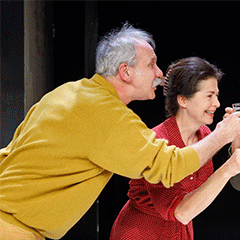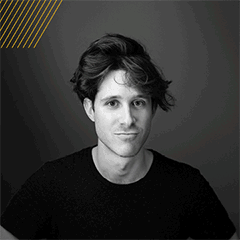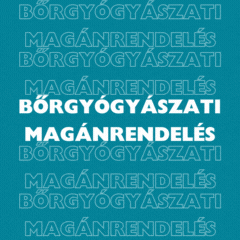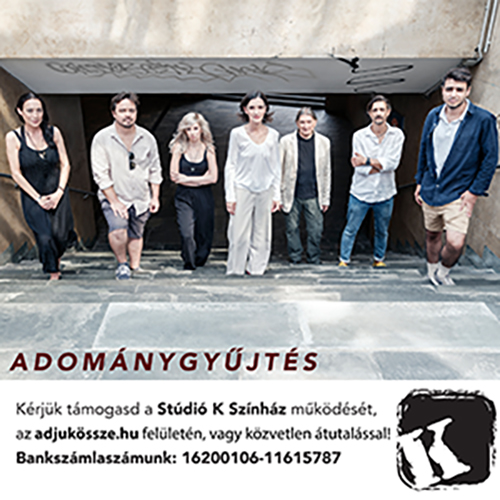My Latinos Are Edgy
In the second season of our project of American – Hungarian collaborations, we would like to continue to deal with the problem of how to approach the question of PC (political correctness) when it comes to the performing arts. What is ‘diversity’ and how diversity appears? Who are the performers, directors, writers? How can we reconcile aesthetic freedom and the ethical need for diversity? These are burning issues today that László Upor explores with American artists, curators, and teachers of artistic higher education in the interview series continued at SZÍNHÁZ.
Playwright Octavio Solis was born in Texas to Mexican parents. He is considered one of the most important Latino playwrights in the United States. He originates himself from the ‘chicano’ subculture, a blend of Mexican and American culture. In one of his dramas, he set the story of Don Quixote at the border along Texas, but he has also worked as a consultant in the film industry, he writes plays in English, Spanish, or sometimes in both languages. With László Upor they talked about equal opportunities, censorship and self-censorship, who has the right to tell certain stories and why he moved to a farm.
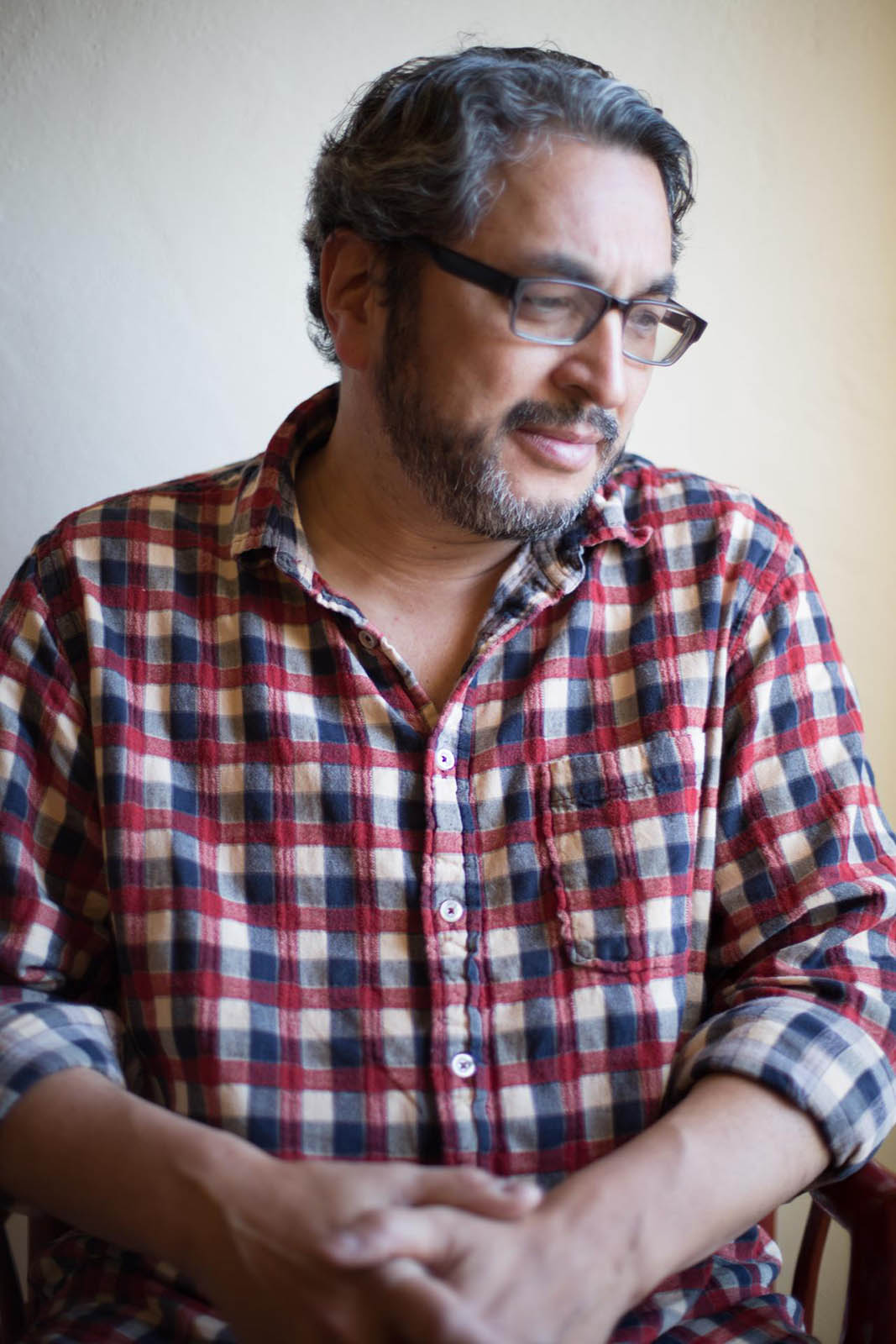
Octavio Solis
What is your native tongue?
My native tongue is Spanish. It was my parents’ tongue and they brought it with them from Mexico to Texas when I was born. I spoke Spanish principally through most of my childhood. But, with school and television as my teachers, English became dominant – it just took over very quickly – so I went from monolingual to thoroughly bilingual to mostly monolingual again. The transition from Spanish to English was gradual over some years but it was thorough. I knew that I was losing my native tongue when I wasn’t dreaming in Spanish anymore.
And what is your native culture?
I would say it’s Mexican, but because I was born on the border in El Paso, Texas, I’m neither completely Mexican nor completely American. I feel very much a part of this culture we call Chicano, which is a hybrid culture that mixes elements from our native Mexican culture with all the things that we love about America: cars, television and movies, the music, the things we love about American culture – except that we alter it. At least in the 60s and 70s, it was very prevalent in my Chicano culture: “Yes, we are going to drive Ford automobiles but we’re gonna do it our way.” We’d paint murals on them, we’d alter the interiors so they resembled indoor lounges, we’d create hydraulics so they would dance – the cars could dance the cumbia. We found ways in which to make that American culture ours. To appropriate it and change it so that it responded to our needs and tastes.
That means that it’s actually a two-way exchange – not one culture adapting/adopting the other. What’s your comment on the line in Tony Kushner’s thirty-year-old Angels in America: “America is a melting pot where nothing melts”?
I think that’s true to some extent. In larger cities you find these intact little neighborhoods where the culture is unchanged. There are neighborhoods in Chicago where all the signs are in Spanish, because of the Mexican community that’s there and everybody speaks Spanish. Or in San Francisco where I lived, they were enclaves where only Chinese was spoken. Or Japanese in Japantown. But over time, with successive generations, there is a melting point where the offspring of these families just become more Americanized. More material. They become subject to consumerism because they are indoctrinated into the Great American religion which is capitalism. I remember when I lived in the Sunset District in San Francisco I’d watch how these 17–18-year-old kids who had just moved from Odessa or from Moscow became enamored of Black culture. They were wearing hoodies, they were using the language of Black Urban America, adopting the walk, adopting the clothes, the baggy pants. Because they loved that culture. They thought this is America, fell into it within less than a generation. So, it’s interesting to me how this country attracts and then alters the psyche of the people that move here. And that happened to me too.
So, how did it feel when your previous president promoted the idea of a great wall?
Oh, I felt he was making political hay of something that has always been an unresolvable issue since before I was born. Growing up, I lived less than half a mile from the border. I would watch the cat-and-mouse game played out in the street, in front of our house. I’d see the Border Patrol and migrants come through and hide in the cotton fields, then watch the detentions happen in front of us. Trump made it one of the pillars of his campaign and his presidency, and at first I just thought I should ignore it. But the more he went on and the more people got on his bandwagon, echoing his sentiments about how the migrants are drug dealers, rapists and murderers, the more I felt like I had to take a stand. I don’t think of myself as a political writer. But with Trump as our president making these allegations and some large part of the population jumping on that, I felt like it was time to actually make a political statement. Because I thought, boy, if not now, when? If not me, who? I thought it was that urgent.
That’s how Quixote Nuevo was conceived?
Yes. I took the story of Don Quixote and set it at the border along Texas and made Quixote someone who helps the underprivileged, the uninsured, the undocumented. He becomes their champion. And I felt like, OK, maybe this means that this play is going to have a limited life because it’s only meant for these times and maybe the times will change in 10 or 15 years from now. But the more I think about it the more I feel that as long as there’s a border between Mexico and the US, as long as the US remains prosperous and Mexico remains essentially a poorer country, this dynamic will always exist. There’ll always be people wanting to come over, and there’ll always be people who say, no, you can’t. There’ll always be weapons smuggled into Mexico, and there will always be narcotics smuggled into the US. Because the US is where the money is, and Mexico is where the price is paid for that kind of commodification.
Have you ever met any kind of discrimination because of your origins, your background, your native culture?
Sure. But it was so deeply embedded that I don’t think they knew that they were being discriminatory.
And in a way that is the most dangerous form of discrimination. When it’s not “intended”.
And sometimes not even I knew that I was being discriminated against until way after the fact. Why am I cast in this part or why do they ask me to do this? I hardly ever seriously interrogated this dynamic. One time I was late for an acting class in college. I was so embarrassed, and I apologized for being late. The professor nodded and said “it’s OK, we understand. You’re on Mexican time.” I paused, then laughed and then everyone laughed. It’s only afterwards that I thought it was insulting. So I made it a point to never be late for anything ever again.
Your personal website introduces you as one of the most prominent Latino playwrights in America. Why do you think it’s important to put that little label there?
People are looking at me. The person who made my website actually pulled that from an article about me and formulated that introduction. I looked at it and said: first of all, it sounded like bragging, but secondly, I had misgivings over that Latino label. I thought it should just read: “one of the most prominent playwrights”, period. But you know, I let it stand because there are a lot of people like me who are looking for and need a role model. They need someone to be that lighthouse for them. Because there’s still so many young people who feel that’s not an option for them, who feel like those kinds of aspirations are still beyond them. Within the last 20 years things have changed dramatically, and there are a lot of playwrights of Cuban, Dominican, and Puerto Rican background who are visible and who are quite well known. Some have won the Pulitzer Prize like Nilo Cruz, and some are giants in the field like Eduardo Machado. But there are not enough writers of my background, we still lack Mexican American voices on the stage.
But you have written all your plays in English.
I’m working on a new one in Spanish. The pandemic has really done a number on me. Of course, it meant the closure of all theaters worldwide for at least two years, and some theaters never recovered. Even though most theaters have reopened, the audiences haven’t quite come back. And neither have I. Those closures offered me an opportunity to take a sabbatical, which I had never done as a writer. I just lay around at home with my wife and daughter, and watched TV, hung out with my chickens and goats. I did catch COVID and I was very, very ill for a few months. I lost days, I lost sleep, I lost focus and motivation. It turned out to be a couple of years before I could get back to writing again. Something in me got disconnected. So, to reconnect, I decided to write a play completely in Spanish, my original tongue. It feels like I’m writing with the wrong hand. But doing that offers me a different door into my writing space.
What is the most painful systemic inequality or injustice of the cultural scene?
Speaking only about Latino cultures, as far as actors go, there’s more equity now than there was before because they don’t just have to wait for someone to do one of my plays for them to be in. There are more writers, so they can be in more of those Latino plays. But now they don’t have to wait for those plays as much anymore. Now they’re considered for everything. They can play any role in any play. The acting field is opening up, especially in the industry, by which I mean film and TV.
The inequities pile up when it comes to education. There are still too few programs that open the doors to people of Mexican culture or Mexican American background. I don’t think they’re opening their doors wide enough to let them in. Finances block the way. I’ve encountered more than a few cases where people got into some great theatre programs but were offered no scholarships or financial aid, and so they had to pass on them.
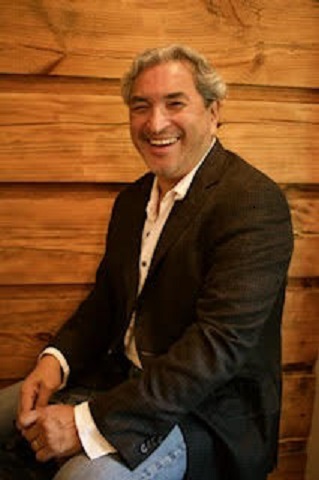
Octavio Solis
How about writers?
For Latino writers it’s still a little hard because there’s an aesthetic that I think needs to be taken into account. Some directors have a grasp of that aesthetic, some do not. We have a different way of seeing the world and dramatizing our lives. We’re more conscious of how the liminal spaces work in our plays. The in-between zones, between life and death, between reality and dream. We’re more conscious of that, and there’s a unique non-realistic approach that we naturally understand, but not the general population. And I’m not sure that as writers we can even articulate how to get there, we just sense when it’s not working. I think many of our writers don’t quite realize how in working within this aesthetic, we are all creating a new theatrical language that is specific and yet global, distinctly 21st century.
Theatre, or art in general, must accommodate various stories from various cultures. However, there seems to be a debate about whose stories they are and who is entitled to tell a certain story.
My standard would be: if that story isn’t told by this person, will it ever get told? And is that story necessary in the culture? And is it told well? Does it say something authentic and original? Is it convincing the people in the culture to say, yeah, alright, he’s got us, that’s how we are?
I worked as a cultural consultant on Coco, the Disney film that came out a few years ago. It was the brainchild of Lee Unkrich the director at Pixar, who is white. He wrote the film; he wanted to tell this remarkable story about a Mexican boy and his dog in this Mexican village, and he wished to offer it as a gift to Mexico. I wish I had written it, but I didn’t. He and his team wrote it. They had the good sense to bring me and two other Latino colleagues to act as cultural consultants as they worked, mainly to ensure that all the story elements were authentic and true. But pretty son we were consulting them on everything. We became an essential part of the film. The story held up, it felt urgent and necessary. It was about building bridges rather than building walls, which said so much to these times.
They were smart enough to bring us on so that we could be the firewall between what’s authentic and what’s not. One of the things, for instance, that they had been conceived of was that there would be a fully English version of the film, which would be released in America, and a fully Spanish one for the international market. But we said no, no, no, no, no, our culture is bilingual, we’re always code-switching. If you want to reach Mexican Americans in this country, you have to include some Spanish. And they went alright, what do you suggest? And so, we marked the lines that could be translated into Spanish for the American release. Also, there was a grandmother who in the early drafts, walked around with a big wooden spoon to whack people with, but we said, no, in our culture it’s la chancla (which is a native Nahuatl word for sandal). Now the grandmother takes off her shoe and hurls it around with missile accuracy. Then when people saw the film, Latinos were saying, how did you know about that? It’s like you were spying on my childhood. That’s culture.
Still, it was Lee Unkrich’s project. He formulated it, he wanted to tell that story and who are we to say no? In the end, I felt ownership over the movie. In the end Latinos in this country felt seen by the industry.
Do you experience any cultural clash when teaching?
Typically, I’ll just come in for a workshop or teach the occasional class for a semester or one term. The classes are often quite mixed and I take that seriously. There was one about reading and analyzing contemporary works. So I brought in a wide variety of works by authors I respect and love and others who are more well-known. And so they are introduced to Nilo Cruz or Marisela Treviño Orta. And I present works by Suzan-Lori Parks or Eric Ehn. Because somebody in there is gonna respond to the work and say, that’s me. You never know what they’re gonna respond to. There will be some Black kid there who will read David Mamet and say, that’s how I wanna write. Or Sam Shepard will attract a young Latina girl who will go, ooh, I love what he’s doing here, I wanna learn that, I wanna know more about that world.
Have you ever been censored? Censored, banned, cancelled? Told not to write something…?
In the big general sense, if I have, I haven’t found out about it. There was one play early in my career, Santos & Santos. It was performed by a small company in San Francisco and received some acclaim. And then it was given a large splashy premiere at the Dallas Theater Center. I thought that that play was going to explode and be done everywhere, but it made no traction. Later I learned that there was a professor who I esteemed greatly, who had just denounced it roundly because he said that there’s just a bunch of Latinos with guns and drugs, and the play is making us look like gangsters and all that. But I didn’t know it until later, when he phoned me to say that he had just seen a production of my play and thought it was a seminal work of Latino Theatre, and how he had regretted saying all these terrible things about it. No wonder I hadn’t had any productions of it. The play still struggles with that taint. I guess, if the censorship comes, it’s usually from communities that are conditioned to react a certain way. My work is really uncompromising, I like to write the kinds of plays that push peoples’ buttons, and not just those of comfortable white audiences, but Latinos who have a preconceived notion of how we should be depicted on stage. Well, in my plays my Latinos are edgy. They’re neither cultured nor well-educated. I grapple with that direct conflict between wanting to maintain your cultural identity and wanting to belong to the larger “melting pot of America”. How does one do that without sacrificing something in one direction or the other? That friction can rub people the wrong way.
I think art, and especially theatre because it’s live art, can be or even should be subversive.
They should be. I have my own red line for when I am asked to remove something or to change it for the sake of the sensitivity of the audience or the philosophy of the theater. If they say no, we can’t do that, then I say, well then this play is not for you. I’m a purist in the sense that I strongly believe that every writer should write their truth. We’ll find the people to produce our work, or we’ll find a way to just shelve it until the right time.
Why would anyone want you to remove anything?
Maybe there’s some advice: watch out for this playwright, he does stuff, he’ll say the unsayable, that is gonna get us in trouble with the subscribers. There’s a lot of right thinking going on, correct thinking. And everyone is on thin ice, and I’ve noticed that, especially at universities, with professors and instructors. Students are all really delicate around each other because they’re afraid of somebody complaining about something and then getting that person fired or cancelled or doxed on YouTube or on Twitter. So in those university settings it can be really, really treacherous right now. It’s a minefield. I realized a long time ago that I’m not cut out for that.
You don’t want to practice self-censorship…
It’s a very fraught environment right now, and we all feel the pressures on all sides, students, teachers, artists, and even audiences are feeling it. Theater as an art form used to find some way to transform the dialectic. And make it exciting, mysterious and complex. I don’t wanna come in with all the answers. I don’t wanna come in on a throne. I don’t wanna come in feeling like I am better than the audience. I come in as if I don’t know what the play is. Because usually I know what I have but I am still finding out what it means. When I start writing a play, I don’t know where it’s gonna go, how it’s gonna end up and it’ll take me on a journey where everyone will be able to find their own place with its own answers. But there are gonna be a lot of other big questions that may not ever be answered in the play. It’s OK to live in that mystery.
Is there any disadvantage of not living on the East Coast?
I used to think there was. I feel that if I had moved to New York, I would have written New York plays. I would have written plays that take place in brownstones, take place in that particular city. But I work with a wide panorama. I like to work with the desert. I like the possibilities of a unit set where a character brings his scenery on as he speaks. I like to see lights change the world before our eyes. And if it is a realist single setting space, like the inside of a house, I want to change dramatically so that it opens up to its own dreams. I think being in California did that to me. Being in Texas too.
And now you live on a farm. And every once in a while, you post pictures of your newborn goats on your social media profile.
We knew that when my wife would retire, with her pension and my playwright “income”, we would not be able to afford the mortgage on our San Francisco house. So we had to move. We wanted some acreage for raising our animals and planting a green garden and an orchard. Now we have 10 goats, whose milk we put in our cereal and coffee. We make our own cheese. My wife also makes the best yogurt. And we have 7 chickens and a rooster, and we get at least three eggs a day from them.
Was it a radical change moving out from the city?
I didn’t realize how urbanized I’d become in San Francisco. I loved being able to walk out my door and less than 100 yards away there was a Starbucks where I could get my coffee and the New York Times. The cobbler was next door resoling my boots. A little grocery store right across the street and a dry cleaner for our clothes. Around the corner was an amazing array of restaurants. And then another block away was Golden Gate Park, and I could walk my dogs there every day. And then I came out here and everything is suddenly far away. And so quiet! At first, I couldn’t get used to the quiet. It was too noisy. I’d be awakened at night by howls of coyotes, in the morning by woodpeckers and scrub jays. I found all that disturbing.
Roaring silence.
Roaring silence. Exactly. And it took a little, about six months, to get used to it. But when we got our first baby goats, I simply melted, and I said I want this life. I need this life. I also started noticing that my shoulders started relaxing more and more, more and more. More and more. I was home.





